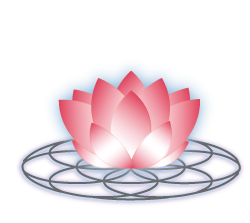Stress is a normal part of life - deadlines, relationship friction, finances, new experiences, coworkers and bosses, and even big life changes all trigger it. Short bursts of stress can be useful, and our bodies are very well adapted in dealing with those. It helps rush blood to our vital organs and makes our senses more acute, as a way to run or fight from whatever is threatening us. But short bursts of stress aren’t how we experience stress in the modern day. Unfortunately, stress tends to be more chronic, which is when our bodies start to struggle.
Chronic stress’s effect on the body is numerous, from changing how your body deals with glucose, to causing high blood pressure, to impacting mental health, contributing to poor sleep, dysregulating your immune system, and therefore poor healing and recovery. Stress’ effects are far-reaching.
Stress has these effects because when the body is stressed, it causes the release of cortisol. Cortisol, as a hormone, isn’t bad - we need it. The issue is when the stress is chronic. One of the things cortisol does is mobilize glucose. This means that it will tell your body to release stored glucose to use as fuel. When stress is chronic, your body can have difficulty managing its glucose levels, getting messages of ‘we need energy now’ versus maintaining homeostasis, which can cause insulin resistance to occur and cause inflammation in the body. In the long term, this can cause weight gain, insulin resistance, and digestive problems, effects on mental health, muscle tension, etc.
This is why managing stress is considered foundational for health. It affects your sleep and ability to digest your food - two other foundations of health. Therefore, if you are stressed out, how much of your food are you digesting and absorbing, and how restorative is your sleep? Managing your stress will improve both of these aspects of health and will have ripple effects in your health and well-being.
Tips on handling stress
Breathing
Breathing is a very powerful tool that we have to regulate our nervous system. There are two different techniques I recommend to my patients: Square Breathing (also known as Box Breathing) and having a longer exhale.
Square Breathing - inhale for 4 seconds, hold for 4 seconds, exhale for 4 seconds, and hold for 4 seconds. Repeat this as many times as you feel to help calm your nervous system down.
Having a long exhale - doing this tells your nervous system that you have time, and therefore, are safe from anything harmful. People who practice yoga tend to inhale for 4 seconds and exhale for 8 seconds, but as long as the exhale is longer, you’re still getting that message to the nervous system.
Prioritize Sleep
Studies consider less than 7 hours of sleep, sleep deprivation. Of course, there’ll be times and phases of life where getting 7 hours of sleep every night is extremely difficult or impossible. At those times, focus on your self-care, and practice Yoga Nidra to help improve the quality of sleep you are able to get.
Sleep is one of the few times your body is able to ‘filter and clean up’ what’s happened in the day. It’s when you consolidate what you’ve learned, but also when your body heals. Not getting enough sleep is considered a physiological stress and will impact your health in many ways. So, prioritize your sleep, make sure that you’re getting at least 7 hours of sleep.
Respect Your Boundaries and Needs
We as humans are social creatures. Finding a group of people you enjoy being with can really help revitalize the spirit and improve your mood. And at the same time, if you’re exhausted, it’s ok to say no and have a night where you’re at home doing things you enjoy (eg. reading, watching TV, eating nourishing food, playing with pets, etc) and have an early night. What is important is that you respect what you and your body need. If you have energy and/or need a change of scenery, then meet up with some friends or explore outside. If you don’t have a lot of energy and/or have used up your social battery, then stay at home and be nice and cozy.
Having some stress is a part of life. The goal is to manage stress better so it doesn’t wreak havoc on your physical and mental health. Pick one of the tips, and incorporate it for a week, and see how you feel. After a week, you can tweak it and see if you want to stack different tools.
If these tools are not enough for the amount of stress you are experiencing, it can be helpful to see a Naturopathic Doctor. They may recommend supplements, acupuncture, or other lifestyle changes. If this sounds like something you need, you can book Dr. Charmagne below.


